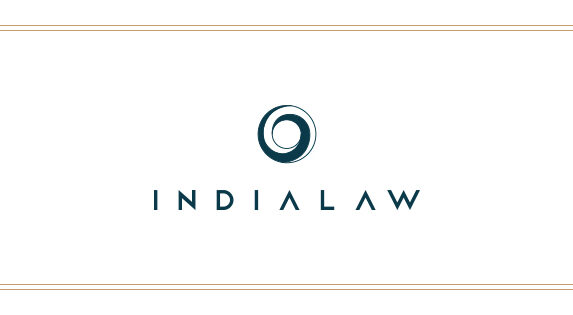Margin Money is not included as Security Interest under the IBC and is not an asset of the Corporate Debtor: NCLAT Principal Bench


The Hon’ble Division Bench, National Company Law Appellate Tribunal, (NCLAT) Principal Bench-New Delhi, comprising of Justice Anant Bijay Singh, Member (Judicial) and Ms. Shreesha Merla, Member (Technical) in Punjab National Bank v. Supriyo Kumar Chaudhari and Ors.1 on 16th September, 2022, held that Margin Money is not included as ‘Security’ and is not an asset of the Corporate Debtor, for the purposes of Insolvency and Bankruptcy Code, 2016 (IBC).
Factual Summary:
Corporate Insolvency Resolution Process was initiated against M/s JVL Agro Industries Ltd (Corporate Debtor). The Resolution Professional (RP) filed two Applications seeking directions against various banks including Punjab National Bank (PNB) to reverse the transaction of appropriation of Margin Money against the Letters of Credit (LC) and to credit the same to the Current Account of the Corporate Debtor, on the ground that the said transactions were in breach of Moratorium imposed under Section 14 of the IBC. The Hon’ble NCLT, Allahabad Bench upheld the contentions of the RP and allowed the said Applications. Hence, the present Appeal was preferred by PNB before the Hon’ble NCLAT.
Contention of the Parties:
The learned Counsel for the RP, argued that Margin Money amounts to ‘Security’ in respect of LCs and Moratorium imposed under Section 14 of the IBC prohibits foreclosure, recovery or enforcement of Security Interest created by the Corporate Debtor in respect of any its property. The Counsel for the RP placed reliance on SBI v. PNB and Ors 2 where the Hon’ble NCLAT held that Margin Money belongs to the Corporate Debtor.
The learned Counsel for SBI, Respondent No.2 in the present Appeal concurred with the view of the RP by placing reliance on various authorities including Shanti Prasad Jain v. Director of Enforcement3 wherein it was held that Margin Money, until appropriated, continues to be an asset of the borrower. The learned Counsel further stated that banks hold Margin Money in trust of the borrower and do not have any right over it and the same can only utilized under certain special circumstances. The learned Counsel threw light on the similarity of nature and purpose between ‘LC’ and ‘Performance Guarantee’, crystallization of both being contingent upon the happening of an uncertain event, and argued that unless the liability is crystallized by the RP, after final reconciliation of accounts and information received, the Margin Money deposited with the bank remains an asset of the Corporate Debtor.
The learned Counsel for the Applicant PNB, argued that the Hon’ble NCLT has failed to appreciate that Margin Money is not a Security for LC and that it becomes payable the moment default occurs on the part of the customer and falls outside the ambit of Security Interest with respect to properties of the Corporate Debtor. The learned Counsel contended that Margin Money cannot in any manner be categorized as an ‘asset’ of the Corporate Debtor, as an LC is an independent transaction which remains unaffected by contract and/or dispute between the opener and the beneficiary. The Counsel relied on Fargo Freight Ltd v. Commodities Exchange Corporation4 wherein it was held that the money payable by the issuing bank belongs to the Judgement-Debtor. The learned Counsel for PNB highlighted that ‘Security Interest’ provided under Section 3(31) of the IBC excludes Performance Guarantee. It was further argued by the learned Counsel that the Margin Money was paid to the supplier to keep the Corporate Debtor as a ‘Going Concern’ and not towards any recovery or adjustment of dues owed to PNB, as is wrongly portrayed by the RP. Hence, the Counsel for PNB concluded that the impugned transaction cannot be categorized as an ‘appropriation’ of the Corporate Debtor’s funds towards the dues owed to PNB.
Findings of the NCLAT:
The Hon’ble NCLAT after hearing the contention of the parties, perusing the material on record, and examining Sections 3(31) r/w Section 14, clarified that the Margin Money in the form of Fixed Deposit Receipts in the present case cannot be said to be a property of the Corporate Debtor as the date of default is much prior to the date of imposition of Moratorium.
The Hon’ble NCLAT stated that the Hon’ble Supreme Court ruling in Commissioner of Income Tax Madras v. Laxmi Villas Bank Ltd. Karur5 shall apply to the present case. The Hon’ble Supreme Court had held that Margin Money is to be treated as earnest money which is liable to be forfeited in the event of default, and that such forfeited amount shall become the bank’s income made in course of ordinary banking business.
The Hon’ble NCLAT also relied on its own judgment in Indian Overseas Bank v. Arvind Kumar6 wherein it was held that Margin Money is not a Security and therefore does not require any registration of charge.
The Hon’ble NCLAT after perusing various provisions of the IBC and well settled principles, held that Margin Money has character of trust, and as such, the original owner shall have no right over it and the same cannot be said to be an asset of the Corporate Debtor.
The Hon’ble NCLAT after placing reliance on various judgments reiterated that in terms of functions, a performance Guarantee and an LC are similar. Further, Section 14(3)(b) of the IBC explicitly excludes application of moratorium to a ‘Surety’ in a contract of Guarantee to a Corporate Debtor.
The Hon’ble NCLAT accordingly allowed the Appeal and set-aside the impugned order of the Hon’ble NCLT, Allahabad Bench.
1 Company Appeal (AT) (Insolvency) No. 657 of 2020
2 Company Appeal (AT) (Ins) No. 329 of 2018
3 (1962) 2 SCR 297
4 (2004) 7 SCC 203
5 (1996) 8 SCC 458
6 Company Appeal (AT)(Ins) No. 558/2020




